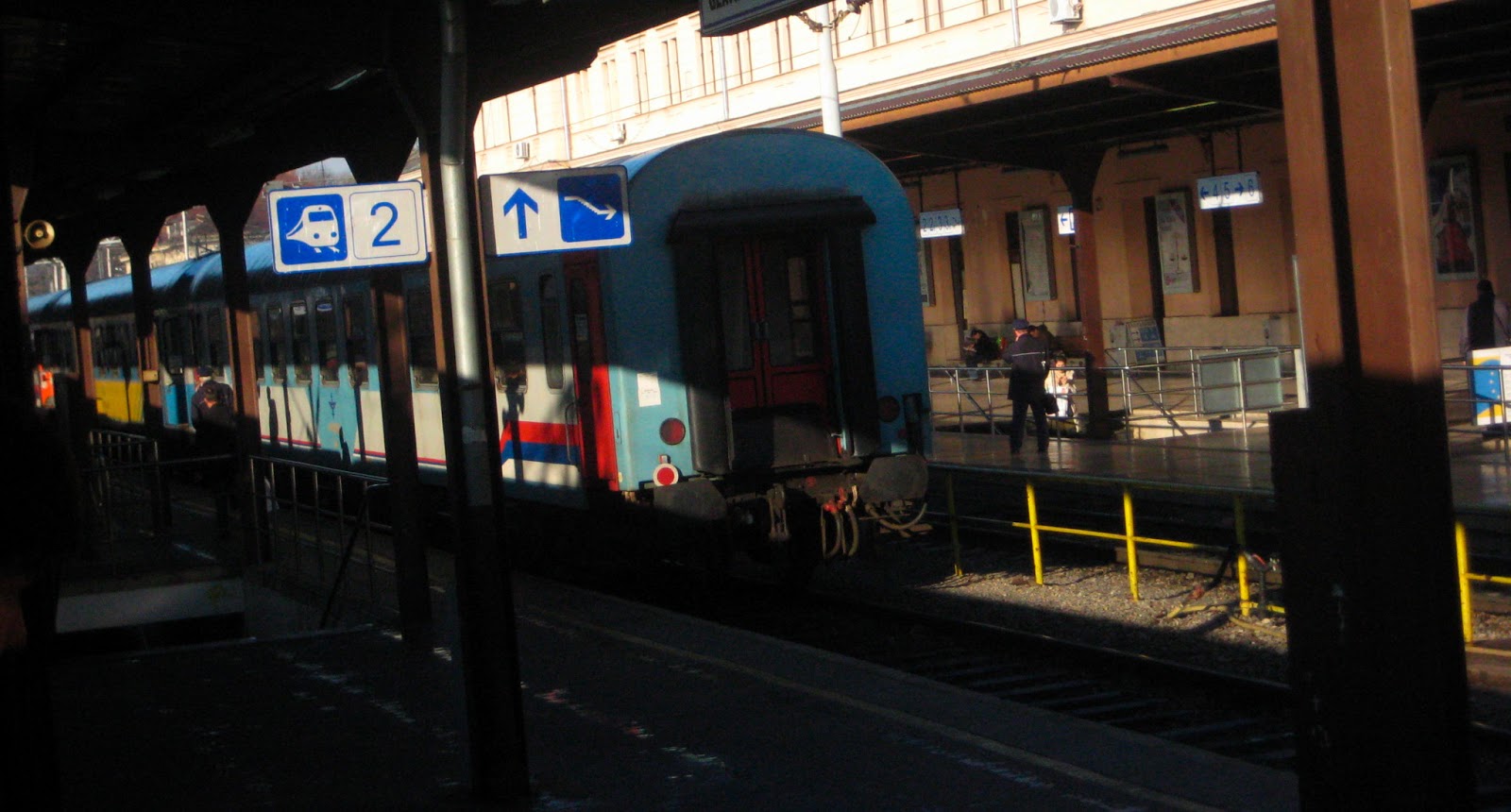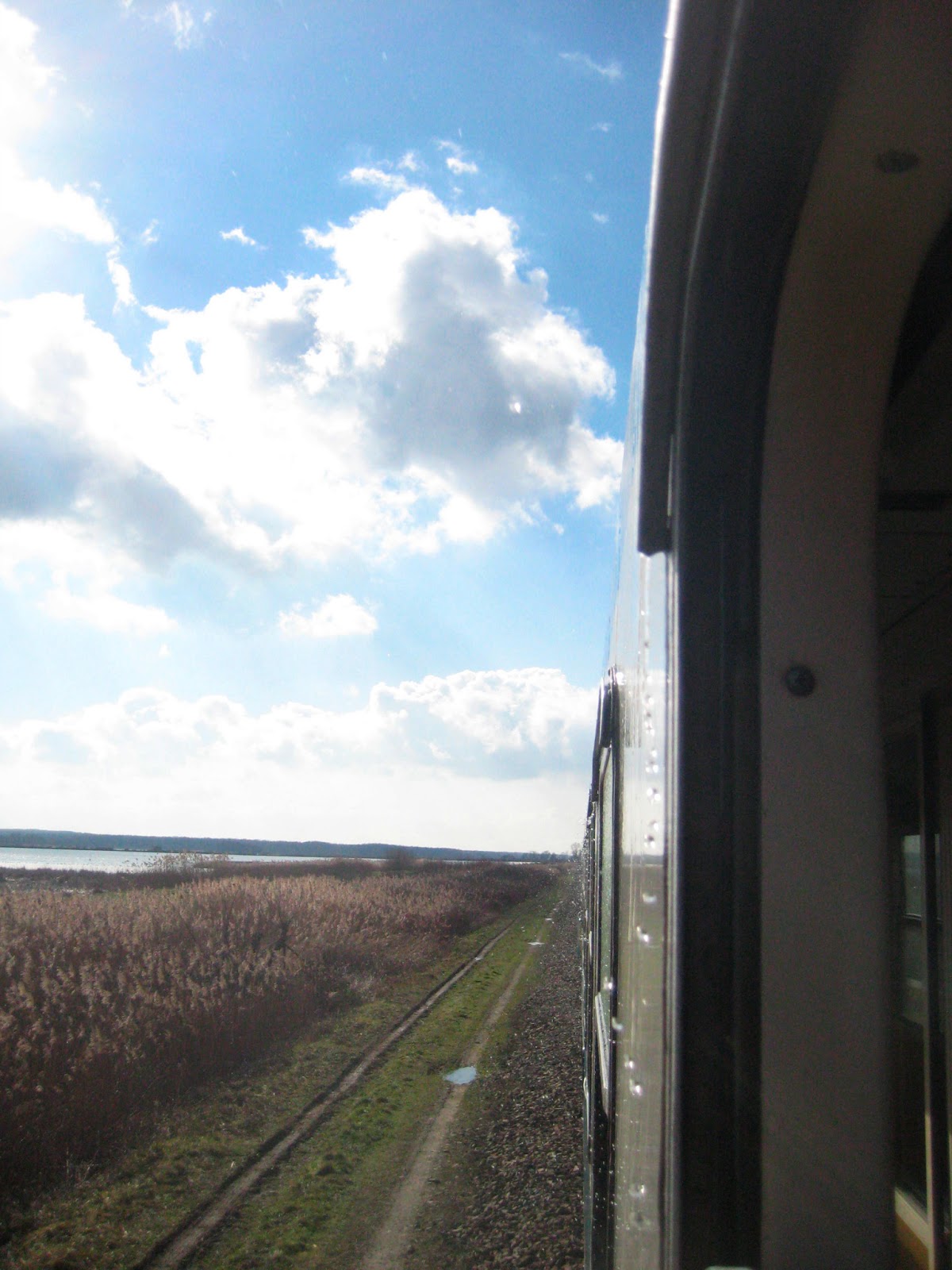I showed up at the ticket counter, after waiting in the
wrong place (either that or the bus was waiting in the wrong place—and I can
feel myself slipping into that stupid blaming place, and quickly backing away,
it never seems to be a really productive emotion. but there was miscommunication somewhere along the line) for the bus—and then stupidly
kept waiting rather than catching a taxi until it was way too late—and got to
the ticket counter as the plane was leaving. It’s certainly been a test of my
patience—I think I was really ready to be home, to be back rooted in a
community. Maybe I’m not destined to be a backpacker because I really miss
“home”—and maybe this is in part why I keep finding myself drawn to studying
home and place, the meaning we get and ascribe to places, to
feelings-in-places, because these feelings have so much meaning in my own life.
And yet—this trip has also epitomized ‘eating like an
ex-pat:’ all the flavors I can’t find in Macedonian food: Indian curry,
jalapeños, hummus. But here I am—sitting in a café, wishing that I had a place
to call home that I could be writing this in, rather than some oddly public
place. I miss silly things, like doing the dishes—or not doing the dishes and
then doing them later. Knowing the names of people around me. Not living out of
a suitcase. Not living with people who snore.
But it’s also been really enlivening to be surrounded by
other travelers—and see the world in little snippets through their eyes. Last
night, there was a girl in whom I caught little glimpses of myself—taking time
off before university to “figure things out”—and traveling. And she asked some
really interesting questions—jumping into a conversation between some Erasmus
students by asking “if there was one thing you could change about your life,
what would it be?” which totally turned our somewhat superficial conversation
about the nuts and bolts of Erasmus on its head. And writing it down—it looks
kind of corny on the written page. But spoken, earnestly, curiously,
inquisitively—it gave me pause. And then later on, she asked each of us to
write a word that was significant to us on a piece of paper, and she took our
pictures with them.
and I think what continues to strike me about these two
questions/tasks is that it seems like she was not only trying to figure out
“the world” through traveling, seeing new places, things, contexts and
realities (who am I in relation to these new places? How do these contexts make
me see things differently? Here? home?), but was trying to figure out the kinds
of people who inhabit the world. And at the same time—asks us to do some
serious introspection.
This morning, heading out of the hostel, I reached my hand
into my pocket and found this letter—
Last night, I had asked Luli about what her word would be—and
she didn’t answer, or at least immediately. And it’s a really interesting flow
of words—consciousness to acceptance to will to change.
Again, it brings me back to Freire (maybe I should re-name
my blog?) and how without awareness we are lost, we are powerless. but how courage to change also dissevers its place next to consciousness.
Of course, we can be aware of things which we can’t change,
or at least not change immediately, but without seeing them, without being able
to articulate these issues, these ideas, these ways/modes of seeing, what do we
have?
and then I was just touched that she had taken a minute, in her rush to head off to that next destination, to bring our conversation to a close.
And maybe it’s this articulation which I’m struggling
with—especially on reflecting on this conference which I attended this past
weekend in Budapest.
Let me preface this by saying that I was kind of expecting
this to be like the best Symposium ever—a collection of scholars just talking
about the Balkans. What could be better? Dreams do really come true! I was going to have an epiphany. Or
maybe two.
And maybe this was a little unrealistic.
But for a conference called “Balkan Dialogue”—there wasn’t
really a lot of dialogue which went on. Very few questions were asked, and so
in many ways it felt like a collection of scholars having their fifteen minutes
of fame, and then fading back into the quiet oblivion. it was also in a huge lecture hall (so sitting in the back you could see who was checking their facebook on their computers quite easily), and man is it easy to tune out in one of those halls, and intimidating to stand up and speak in front of.
Language was certainly a barrier for some speakers—and I
also think impacted how engaged the audience is—I wonder/imagine if Englishes are
not all mutually intelligible (how does a non-native speaker of English from Hungary hear a non-native English speaker from Albania?) . And then some presenters, I don’t think, were
very professional—there was a husband/wife duo (dangerous) who presented back
to back, and the husband kept whispering/prompting his wife (her English was also
not her strong suit, so I think she was already feeling self-conscious about
it--not to mention Balkan gender dynamics and the macho man phemenon), and finally she just read the text literally from the slides—kind of
sounding like the auto mated voice that reads severe weather alerts. she was even talking about something I was hoping would be really interesting--and I didn't absorb hardly anything. And then
they—while the next person was presenting—were on their phones, taking pictures
of their son who was fidgeting in the front row. talking through smiles.
maybe I should teach a class on cellphone etiquette. or maybe the cultural norms governing cell phones are just totally different here and I still can't read or understand them.
there were also a bevy of speakers who just didn't show--creating some odd pockets of silence in the conference.
and then, just to top it off--a Bulgarian guy closed out the conference, speaking about Bulgarian-Macedonian relations, and how things had been going well and then the Macedonians got into their hyper-nationalist groove, and things were now on the rocks. and of course, the Macedonian piped up--and thankfully they agreed to disagree peacefully, but I think it only speaks to how, perhaps the Bulgarian guy was onto something--some things with Macedonia are well, sensitive. (However I don't want to get into the validity of some of his other claims--like Bulgaria and Macedonia are two states, one nation. Yeehaw, what an ugly can of worms to open.)
The conference also opened with a bunch of diplomats speaking 'diplomat-speak' which I'm realizing I don't do very well. I think especially after being exposed to some really amazing scholars/presenters through the Rosenfield Program (thanks Sarah, Laureen and co!), who a person is, what their title is, doesn't really tell me very much, nor mean very much to me. In particular, the Croatian Ambassador made some comments about how dysfunctional Bosnia is (about as close to the "truth" as I think we can get) (I think he used the term "broken" which I object to) but then kept reiterating how the Bosnian Croats were "the most neglected people in Bosnia" (what about the Roma? a voice in my head pipes up). But what's so frustrating is that, for me, imbedded within these two statements is some huge honking cognitive dissonance--Bosnia, to me, is "broken" if you really want to use that language, because of statements like "X is the most neglected peoples" because it again falls into this miserable ethno-territorial-monochromatic-deadend kind of vision of Bosnia.
I remember one of the things a girl I'll call Selma said when I interviewed her in 2011, was that there still isn't a legal category "Bosnian" that one can identify with (there also hasn't been a census in which to identify yourself as Bosnian--but that's another issue all together). and until people can and have the opportunity to begin reorganizing their identity-wardrobes (and maybe getting rid of some of the pieces that have gone out of fashion?) really, how are things going to change? how is language like "the X are the most victimized by Bosnia's current political/social/economic/whatever systems' how does that help make Bosnia better?
so it was really disheartening for me to have this be the opening shade of the conference.
I think it should also be noted that I was somewhat disappointed with my own presentation (the perennial academic question "did I make any sense?" --and I'm sure that colors my own perspective/experience of the conference.
Plane home leaves soon.
an amendment:
I don't mean to sound totally negative about this conference experience--there were a lot of positives (I learned a lot about Turkey. totally fascinating. Like there's a Muslim sect there which doesn't pray in mosques, but in Cem houses--and because they don't pray in mosques, there's all sorts of tension with the government...) I also got to talk with a guy from N. Cyprus (the Turkish side) who, coincidentally, also studied peace education. I guess us Balkan-lovers are quirky in similar ways.
I'm really glad I went--but also do wish that it could have been better. but that's the way everything goes.
an amendment:
I don't mean to sound totally negative about this conference experience--there were a lot of positives (I learned a lot about Turkey. totally fascinating. Like there's a Muslim sect there which doesn't pray in mosques, but in Cem houses--and because they don't pray in mosques, there's all sorts of tension with the government...) I also got to talk with a guy from N. Cyprus (the Turkish side) who, coincidentally, also studied peace education. I guess us Balkan-lovers are quirky in similar ways.
I'm really glad I went--but also do wish that it could have been better. but that's the way everything goes.







